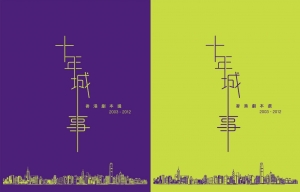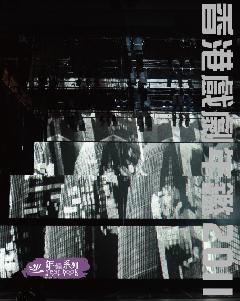2015年11月
Memory as critical faculty
All critics rely on memory: this is the unwritten rule of an entire profession, encompassing activities as diverse as everyday blogging and long-term academic research. Even those who painstakingly take notes while watching a show, even those who only comment on a show when also having a recording of it, use memory as a fundamental term of reference. Theatre is, for a critic, nothing but the sum of those indelible traces that it leaves in his or her memory. From those traces, mere fragments of an experience of the past, the critic starts to reconstruct the show in what may be a book, a review, a conference paper, a university lecture, a conversation, and so on. Yet, what Brook once said about the memory of theatre is painfully true: one does not remember a show, but rather recreates that show in one’s memory, starting from the original feelings it entailed. The memory of theatre is invariably an affective memory: personal, influenced by emotions and filtered through the lenses of the soul. Indeed, theatre only exists at that precise moment when the encounter takes place, and the rest is memory, the memory of those feelings experienced during the encounter. One moment of silence, one touch of light on an actor’s face, one gesture, one line from a great play– all of them are melted into such stuff as memories are made on. The power of theatrical memories resides in the endurance of the feelings associated with them, from which every spectator starts to reconfigure the actual experience in their mind.
What about the rest of the complex, often complicated elements that, together, form a show? Are they all forgotten? Some, certainly, but not all. There is an improbable logic of critical memory in the theatre, a vision that persists beyond the next-morning review. Not easy to define, this particularity may be considered the basis of criticism, as it captures the very essence of an intellectual verdict, the hierarchical appraisal, the necessary value judgment without which to comment on theatre is to babble about it. Admittedly, there is a lot of babbling about theatre today, part of it informed by political agendas that fall under a broad category once described by the great literary critic, Harold Bloom, as the “school of resentment”. Nevertheless, simple and often simplistic remarks about the politics behind a group, a director or a show, cannot replace genuine criticism, which is a critique based on value judgement. In this process, memory is the key, as remembering theatre is not the same as watching theatre. What is remembered from the live, immediate experience of theatre, is that which is worthy of memory, and in this process of retention, the mind and the heart operate the most authentic and consequential judgement. To trust one’s memory is to already admit that on stage, like anywhere else in this universe, there are things that should be remembered and things that should be simply forgotten. The choice is not always easy, but consistently just in one’s own value system. This is the axiology of memory, a function shaped by experience, knowledge and that indispensable virtue named critical spirit.
Memory and imagination
In the work of a critic there is another connotation of the act of memory, one far more intricate, more elusively involved in the dialectics between the reality of the theatre and its rendition through personal retrospective analysis. This implies the relationship between two faculties of the human mind that criticism enacts at the same time and almost with the same intensity: memory and imagination. By definition, memory, however dim or unreliable, is the recollection of reality. Imagination, conversely, is the act of surpassing reality through creative thought. No immediate correlation seems to link these two different impulses, yet they are so profoundly connected that no act of criticism could come into being without their synergy.
It has to be said, in this context, that a theatre critic is not merely the observant viewer of a show, as that would be too restrictive a definition. A true critic is one who engages in a constant dialogue with the theatre, and through the theatre, with the world itself. Far more than a passive guardian of short or long term theatrical memory, a critic is an author who, as Barthes would say, converts the pleasure of watching and reading theatre into the pleasure of writing and speaking about that which has meaning in the theatre. While doing so, the critic travels beyond the visible, towards the invisible of this art form. This is the path of imagination, bonding with memory, springing from it and ultimately surpassing it. If criticism is, as it was once rather famously said, the contemplation of an ideal theatre, then it is also a celebration of the capacity to imagine that theatre, against the background of which everything is remembered and discussed. No judgement of a show is conceivable without the vision of that ideal, thus purely imaginary theatre.
Yet, apart from the comparative dynamics between remembering the real theatre and envisioning the ideal one, there is something else to be added to this admitted paradox of memory and imagination, something that affirms another unpredictable affinity between them. The memory of the stage is, at times, a form of imagination in and of itself. This implication does not compromise its accuracy, nor does it stifle the critical spirit, already praised in the above paragraphs. Imagination simply enriches memory, by means of adding the valences of critical creativity. Combining the claim to historical precision and the impetus for personal creativity, criticism is an extension of theatre – not only in the sense endorsed by the great Kenneth Tynan, who thought a review should discuss a show in the language of that show, but in a somewhat more poetic sense. Yes, the critic is seldom involved in the creative process that makes theatre possible. Yes, the act of criticism implies distance, rigour and objectivity. And yes, undeniably, a critic should not ever renounce the noble mission of giving the reader – or, as the case might be, the listener – a valid insight into the real experience of watching a show. However, the mystery of transforming the moment of live theatre into the duration of recorded criticism involves a little more than the exactitude of analytical memory. It involves the freedom of inspiration that makes one review different from another, one article distinct from a blog item, and so on. In an art form that is the land of dreams, to remember is to re-imagine: to re-imagine the fantasies of a group of people miraculously putting together a vision that only existed when it was discovered by one other group of people.
This is another paradox of memory: filtering the intensities of the collective experience of watching a show through the layers of individual thought, and transforming them into the subtleties of a personal critical account. What is individual and personal in this journey shapes the awareness of that show, constantly redefining the encounter, connecting it with other theatre experiences, distorting it, and eventually transforming it into something different. This is as much a consequence of personal knowledge, of associative thinking, as an effect of pure imagination. The actuality of once being in the theatre and watching a performance is gradually altered by the derivative constructs of critical analysis. This is radically opposed to the above mentioned act of axiological subtraction that memory operates, retaining only the valuable material. It is a process of addition, through which one isolated discovery is enriched by comparisons and associations with countless other theatrical adventures. Though seemingly real and realistic, this way of mentally elaborating on the reminiscences of theatre is in fact a sublime betrayal, a Proustian attempt to re-orchestrate reality through imagination.
However imprecise or completely distorted, imaginative memory of theatre has the power to soothe, in a way, the critic’s painful search of lost time. What else is the act of thinking about a show but a faint endeavour to recapture a moment forever lost in time? And what else is the act of producing criticism if not a valid consolation for the saddening realization that theatre is always lost in time? A critic is not a judge, despite all the etymology, the history and the contemporary perceptions of this profession. A critic is someone who loves theatre so much that, when all others stop thinking about it, he or she feels the urge to revisit it again and again and again, through memory and imagination. It is this love that brings one back to the darkness of the elegant classical auditorium or to the challenging environment of alternative spaces, in the proximity of the actors and in a tacit complicity with the director. It is only love that can justify the perseverance of watching a new show based on an old play, all too familiar. And it is ultimately love that charges memory with poignancy and turns it into imagination. Thus, criticism is the only way to linger upon the fading moment of the show, by reinterpreting and re-envisioning it in order to tame the solitude to come.
The memory of space and the space of memory
There is one other facet of memory involved in the noble act of meditating on theatre conventionally called criticism. It incorporates an objective dimension of theatricality, less likely to be changed through remembrance than anything else: the space. Arthur Miller used to compare theatre with cinema in terms of the viewer’s freedom: unlimited due to the openness of the stage in the former and predefined by the camera’s angle in the latter. His conclusion was predictable: theatre is the territory of freedom, as each spectator can choose what part of the stage to watch at any point in time. Following the analogy, one could add that the critic has also the absolute freedom to choose what to remember. This is, nonetheless, a romanticised understanding of spectatorship and, implicitly, of criticism, for both watching and remembering a show are inextricably linked to the most tangible component of the theatrical experience, the space. Any performance is experienced in a specific space, in a specific place, in a specific location and its semiotic code remains forever associated with those specific space, place, and location. For any spectator and for any critic, the memory of theatre means embracing the adventure as a journey through a universe beyond the commonplaceness of the real, yet related to it in a profound way through its space.
Retaining a particular theatrical performance necessarily presupposes preserving it in the specific space in which it was initially experienced, a space that memory captures forever. The empirical sociology of the theatre proves that an audience’s most enduring memories are indissolubly related to visual perception. Images remain in the minds of the spectators for much longer than the voices of the actors, the text, or the music. Even so, the images that haunt the spectators’ memory are subjective flashings, but the space in which they come into being, no matter how differently perceived, is the same for all those who temporarily inhabit it. This is yet another paradox of theatrical memory.
Therefore, the critic’s most delicate and at the same time most imperative undertaking is to perform the synthesis between subjective memory, infused with critical spirit and yet indebted to imagination, and objective memory, shaped by the space associated with each theatrical encounter, for eternity. This way, criticism becomes the Borgesian realm of memory understood as retrospective axiology, implied imagination, nostalgia and, not least, a sense of irreversible space.
本網站內一切內容之版權均屬國際演藝評論家協會(香港分會)及原作者所有,未經本會及/或原作者書面同意,不得轉載。









